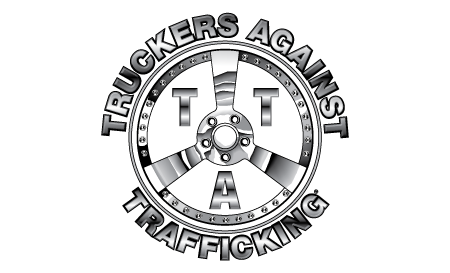Issue 120
FMCSA Accepts Challenges Rest Break Pre-emption Ruling:
The Federal Motor Carrier Safety Administration (FMCSA) has announced that it will consider petitions for waivers from its 2018 and 2020 decisions that preempted truck driver meal and rest break requirements in California and Washington state. The California law mandates duty-free 30-minute meal breaks for employees working more than five or ten hours, along with additional 10-minute rest periods every four hours. In comparison, federal law requires a 30-minute break for property-carrying commercial motor vehicle (CMV) drivers working over eight hours, offering flexibility in timing.
The FMCSA initially ruled on this matter in 2018 and again in 2020, asserting that the California law couldn't be enforced nationwide and in Washington state due to preemption by federal law. The agency's preemption decision was upheld by the 9th U.S. Circuit Court of Appeals in January 2021.
The FMCSA's announcement comes amid concerns from some in the trucking industry that the California meal and rest break laws impose an unreasonable burden on interstate commerce and are incompatible with federal hours-of-service rules. Supporters of the preemption ruling argue that a uniform national standard for work rules is crucial for both safety and the supply chain.
The FMCSA has invited petitions seeking to challenge the exemption decision, with a deadline for submission by November 13, 2023. The agency will review these petitions and provide an opportunity for public comment before making any further decisions. The outcome of this process could impact the implementation of meal and rest break laws for intrastate and interstate property-carrying and passenger-carrying CMV drivers.
Cargo Theft Slightly Down:
In 2022, the United States experienced a total of 1,090 cargo theft incidents, with an average theft value of $361,986, according to a study by Overhaul. The year saw a 29% increase in volume and a 58% increase in average theft value compared to 2021. Cargo theft occurred at a rate of 2.99 incidents per day in 2022, up from 2.15 in the previous year. Key findings include:
- 3% of cargo thefts were concentrated in 38.6% of the national territory.
- Mondays and Tuesdays had the highest cargo theft concentration, accounting for 34% of incidents.
- California, Texas, and Georgia were the states with the highest theft rates, comprising 57% of total thefts, with California leading at 34%.
- Electronics were the most stolen product type (23%), followed by miscellaneous items (13%) and home and garden products (12%).
- Last-mile courier thefts and theft of full truckloads accounted for 27% of incidents, followed by pilferage (24%).
- Cargo thieves targeted immobile, unattended loaded freight trailers and containers. Pilferage rates increased by 5%, while theft of full truckloads decreased by 27%. Facility theft and deceptive pickup combined increased to 13% from 5% in 2021.
- Common theft locations included unsecured parking (44%), truck stops/fuel stations (22%), warehouse/distribution centers (+23%), company yard/premises (+184%), and boarding houses/carrier facilities (+72%).
- Certain product types saw significantly higher average values in 2022 compared to 2021, including building and industrial (+226%), food and drinks (+131%), auto and parts (+84%), and electronics (+70%).
Overall, cargo theft incidents are expected to slightly decrease from 1,090 to 1,031 in 2023 (Overhaul), indicating a continuing challenge for supply chain security in the United States. TIA members feel the burden of theft almost daily and is something TIA and the industry continue to try and address.
EV’s Rapid Influx into Auto Marketplace Despite Concerns:
Despite initial concerns of a trade war between the U.S. and its allies over electric vehicles (EVs) due to the Inflation Reduction Act (IRA) favoring domestic EV production, recent trade data indicates that the fears may have been overblown. U.S. imports of EVs from the European Union (EU) and other suppliers have skyrocketed since President Biden signed the IRA into law last year, even though the law's consumer tax credit was initially thought to favor North American manufacturers.
The IRA, a cornerstone of the Biden administration's climate agenda, aimed to promote domestic EV manufacturing by offering a substantial consumer tax credit for EVs built in North America. The trade figures suggest that international pressure from allies like the EU, Japan, and South Korea has influenced the administration's approach, resulting in the recent surge in imports.
While concerns were raised about the law's impact on foreign competition, the data reveals an increase in U.S. imports of battery-powered EVs, indicating that foreign manufacturers have found ways to offer their vehicles to American consumers. This is partly due to the inclusion of a separate IRA tax credit for leased EVs, known as 45W, which was initially overlooked. This provision has given foreign manufacturers a path to compete in the U.S. market, albeit through leasing, and has somewhat eased the tensions surrounding the law.
Despite the increase in imports, some lawmakers and industry groups argue that the Biden administration's implementation of the IRA is undermining the original intent of promoting domestic EV manufacturing. The IRA has sparked debate over whether the administration has distorted Congress' intentions and whether it has violated international trade obligations by favoring North American-made EVs.
The data also indicates that the commercial tax credit for leased vehicles has had a significant impact on the market, encouraging companies like Hyundai to boost EV leasing rates and positively affecting the Korean battery industry. While the surge in EV imports suggests that fears of a trade war have been reduced, broader trends and challenges, such as achieving the administration's goal of making 50% of new car sales electric by 2030, remain crucial aspects of the ongoing EV transition. Critics of the movement agree that alternative forms of energy – in this case cars – are good, but that eliminating fossil fuels altogether is unwise. The market’s demand and buy-in to green energy will remain to be seen.
If you have any questions about this newsletter or TIA 2023
Policy Forum, please email [email protected]
TIA 1900 Duke Street STE 300 Alexandria, Virginia 22314 US
Want to change what emails you receive from us? Update your preferences.















